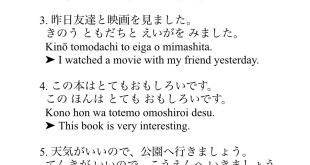How do you ask for the bill in Japanese?
Asking for the Bill
| Japanese Phrase | Romaji | Meaning | Formality Level |
| お愛想 | Oaiso | Please bring me the bill | Very Informal |
| お会計お願いします | Okaikei onegaishimasu | Please check out (the bill) | Polite |
Splitting the Bill
| Japanese Phrase | Romaji | Meaning | Formality Level |
| 別々でお願いします | Betsubetsu de onegaishimasu | Separately, please | Polite |
| 割り勘にしますか | Warikan ni shimasu ka | Shall we split the bill? | Casual |
| 割り勘にしましょう | Warikan ni shimashou | Let’s split the bill | Casual |
| 割り勘でいいですか | Warikan de ii desu ka | Is it okay to split the bill? | Polite |
| 割り勘してくださいませんか | Warikan shite kudasaimasen ka | Would you please split the bill? | Very Polite/Formal |
If you want to say you’d like the bill in Japanese, the safe bets/correct phrases are these two:
お会計お願いします。okaikei onegai shimasu.
お勘定お願いします。okanjō onegai shimasu.
They both mean “Please tally my bill.”*

But if saying “onegai shimasu” seems like a tongue twister, you can raise your hand a little bit or look around for your wait staff, give a little bow (just with your head) when your eyes meet, then make the writing on your hand gesture.
チェックお願いします。chekku onegai shimasu.
= “Please give me a check.”
This is appropriate for 洋食 (yōshoku) a.k.a. western style restaurants.
The phrase that seems cool but you shouldn’t use is:
おあいそお願いします。oaiso onegai shimasu.
[This bit is extra reading, so if you’re not into additional cultural knowledge that is almost useless, you could stop here.]People (even Japanese people) use this “おあいそ” phrase, because as patrons they’ve heard sushi chefs etc. yell out “おあいそ!(oaiso)” when you ask them for a bill. Or you might be in Kyoto at a Japanese restaurant (料亭/ryōtei) and hear it uttered out by staff.
おあいそ comes from お 愛想 (o aiso/aisō). Having 愛想 (愛想がある/aisō ga aru) means congenial. If you lack 愛想 (愛想がない/aisō ga nai), it means you’re unfriendly. Furthermore, if you run out of 愛想 for someone/something (愛想をつかす/aisō o tsukasu), that means you gave up on the relationship.
Calling a bill “おあいそ” came about, because it was originally used by restaurant staff to apologize to patrons, “We are sorry to be lacking in お愛想 (congeniality) that we have to give you a bill.” (“お愛想がなくて申し訳ございません。”)
It has been also used by sushi chefs as a staff lingo, when they didn’t want to directly say “お勘定/okanjō” in front of their customers.
So meaning-wise, it would be weird for customers to say “おあいそお願いします。” It would be either “Give me friendliness”(?) or could be taken as “I’m sick of you.” Using it has become too commonplace, restaurant staff probably won’t mind. But if you go to a proper place in Kyoto, it’s best not to use the phrase.
There are words considered “隠語/ingo” = insider jargon/slang. Words like “おあいそ” or “あがり/agari” for tea are some of them. If you are a patron, it’s considered classier not to use them.
*I got a question about whether there’s a difference in nuance at all between 会計/勘定 and there is, a little bit, so if you are interested please refer to the comment. (You may have to click on “All” next to “Recommended” to see.)
Related Post:
Common Questions in Japanese
20 Basic Japanese Phrases
 Learn Japanese Free Learn Japanese Free
Learn Japanese Free Learn Japanese Free







